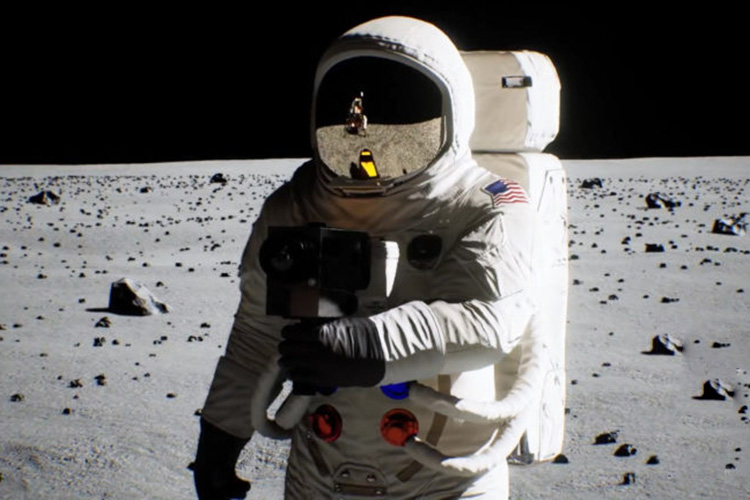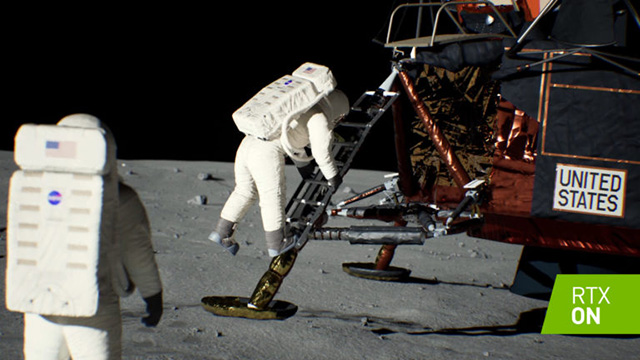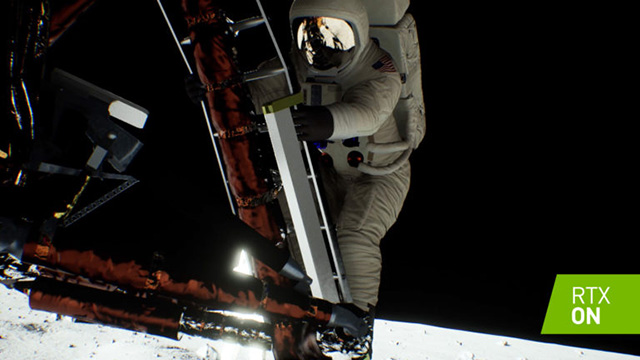NVIDIA Recreates Apollo 11 Moon Landing with Real-time Ray Tracing
[the_ad id='1307']

Back in 1969, Neil Armstrong and Buzz Aldrin landed on the surface of the moon. To celebrate the 50th anniversary of that major achievement in human space endeavours, researchers at NVIDIA have recreated the old demo made by them back in 2014 from low quality grainy images with industry-leading quality and details, thanks to RTX.
The company has used RTX real-time ray tracing technology on RTX GPUS to achieve this visualization by paying attention to the lighting and reflections. The end-results, indeed, look stunning and eye-catching. “*Prior to RTX technology, only special effects rendering farms working for hours or even days on a single scene in a movie could manage this level of realism.*”, says NVIDIA in the blog post.

NVIDIA explains RTX real-time ray tracing as follows: “Each pixel on the screen is generated by tracing, in real time, the path of a beam of light backwards into the camera (your viewing point), picking up details from the objects it interacts. That allows artists to instantaneously see accurate reflections, soft shadows, global illumination and other visual phenomena.”
If you take a closer look at these images, you will be able to notice the depth and details these images preserve. Coming up with this level of detailing without quality sources is indeed an incremental achievement and it portrays the company’s upper hand in this department.

You may download the older version of the demo here in case you’re curious to compare the amount of details RTX has brought in. I can’t just stop wondering how the next-gen games utilizing RTX ray tracing to the fullest would look like in the upcoming years considering its potential. So, what do you think of this RTX powered demo? Let us know in the comments.
[the_ad id='1307']
Source link
[the_ad id='1307']
